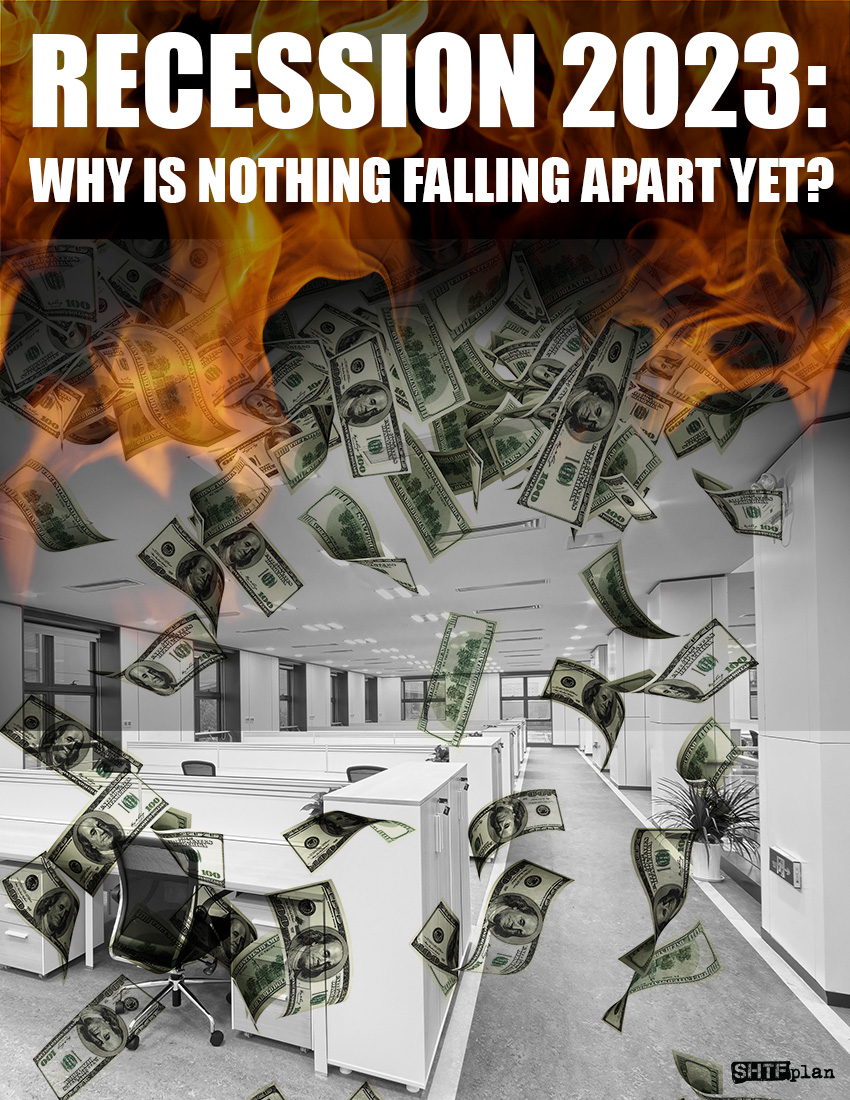
TRUMP SAYS: HUNTER MAKES FORTUNE FROM SHADY DEALS!
BIDEN FAMILY STINKS TO HIGH HEAVENS OF CORRUPTION!
DON'T GET LEFT OUT: HUNTER MUST BE STOPPED!

This article was originally published by Tess Pennington at Ready Nutrition.

The mind is a very powerful muscle in the body. In fact, it’s the strongest muscle and has the capacity to make or break you. It can either propel you through a challenge or paralyze you into inaction. Therefore, having control over the mind gives you the wherewithal you need to withstand biological and emotional stressors during disasters or life events, as well as better adapt to the situation at hand. In fact, Navy SEALS use this technique in their training which is why they are always cool and collected when in dangerous environments.
If the mind is untrained, it can easily go to a place of hopelessness and negativity where eventually a person gives up altogether.
If you’re caught in a situation in which you feel powerless, there are two scenarios that could play out: 1.) You can imagine yourself as a hero, figuring a way out, or 2.) You can imagine yourself as a victim, suffering and waiting for rescue. Which would you choose? (The answer is that you are going to figure a way out and survive!) Remember, it’s all in your attitude!
A key strategy for having the right attitude is through mental repetition. Repetition is an effective measure in preparing the mind. Repeating positive reinforcing statements such as, “I can do this”, “I will succeed”, or “I will get through this”, trains your mind and prevents it from wanting to give up. This creates resiliency.
Being resilient does not mean that a person doesn’t experience difficulty or distress. In fact, developing resilience is likely to involve considerable emotional distress. It is what gives people the ability to come back from disappointment and failure stronger and more determined than ever.
Resilience is not a trait or characteristic that you either have or don’t have. It is a learned ability, one that can be learned and built and developed by anyone. Resilience relies on different skills and draws on various sources of help, including rational thinking skills, physical and mental health, and your relationships with those around you.
Resilient people not only survive and bounce back after a setback, but they also come back stronger and wiser. People who are highly resilient are excellent at finding the silver lining in any situation. They excel in finding the lesson each negative experience has taught them and applying what they learned in future endeavors.
When playing stories out in your head, your mind does not know if the story is real or not real, it just plays the story out as it unfolds. If you imagine yourself being decisive, controlling your fears, and behaving rationally, then the mind will only know to act this way in the future. If you imagine yourself hiding, terrified and meek, then you will train your mind to act in this manner.
Maneuvering through a worst-case scenario takes mental preparation and working through emotions we would rather not deal with. Ultimately, one of the emotions you must conquer is fear. Fear and negative thinking can quickly spread like a virus infecting yourself and others around you. Having overwhelming fear can take you to a fight or flight status and literally cause the brain to be paralyzed into inactivity. One way to circumvent this is through visualization.
Visualization techniques are effective exercises that one can do to safely put themselves in a dangerous situation in order to desensitize oneself to the stress of the situation. In turn, you break through the fears and anxieties of the situation and begin finding plausible ways of dealing with it. These mental “dress rehearsals” are similar to what athletes use to give them a greater edge in performance and countless research studies back this up. In fact, as far as athletic performances go, using visualization exercises improves performance by 45%! Why not use this time tested tool in mentally preparing for emergencies?
In an article on the subject, “By repeatedly facing threatening situations under calm, controlled emotional conditions, we learn to respond in desired ways, free of threat. A good example would be someone who is paralyzed with germ-related phobias, washing hands, showering, and changing clothes dozens of times daily. By encouraging that person to rehearse cognitive reframing and relaxation methods while gradually exposing themselves to sources of germs, a therapist helps build a sense of safety and mastery. Step by step the work proceeds to tackle greater challenges, from looking at germ-laden objects in the toilet to quickly touching doorknobs to shaking people’s hands and beyond. Quite literally, desensitization reprograms our emotional responses by rewiring our brains.”
The steps below are 9 steps to help better prepare you for a disaster and revolve around the idea of visualizing an incident before you are faced with it. Doing so helps to diminish stress and your performance will increase. With time and practice, this simple meditation process can be trimmed to be done in about 5 minutes, and in this manner, you can face challenges in a few hours in the same manner that you can face them with several days or weeks to prepare.
After an event, do the same thing, focusing not on what happened but on what is in front of you.
I have found that it is necessary to clear your mind and focus when you are preparing for a significant event, as well as after the event occurs. There are several elements to performing this, and they can be used for just about anything you may face.Events that occur suddenly and without warning are a little harder to prepare for, and some of them not at all. Stress is something that can build up to a degree that renders you incapable of doing anything, if you do not learn how to deal with it.
The enormity of training your mind to act in times of difficulty is hard especially if you do not have a starting point. But breaking that into smaller, more achievable goals makes the goal easier. These small victories are purposed actions that keep your mind moving in a positive stream. In a dire situation, where multiple people are affected, having these small victories keeps the morale of the group up so that everyone is working toward a common goal – surviving the event.
A starting point is one referenced above – visualizing the event and all that it entails. Think of the challenges, the societal or community implications the emergency will have, the supplies you will need, how long you think the emergency will last, and how your family can come together to get through. Further, you need to think of the darker side of the disaster and start coming up with controlled and actionable steps – this is the warrior mentality!
Let’s cover a few concepts that can further your preparations…thoughts to consider.
One principle you must keep in mind when dealing with emergencies is that change is inevitable. Change is the one true constant in this universe, yet it is something we tend to stress about and avoid altogether. Many do not handle stress well because they are unprepared to deal with what has been thrown at them. They are resistant to change. This rigidity will only hinder them from finding solutions. Disasters bring change and a lot of it. An aspect of mental preparedness, therefore, is learning to be more fluid and respectful of change in your day-to-day life. This ease in movement and acceptance of change will help you adapt more quickly to all situations. The more flexible you learn to be, the more adaptable you will be in an emergency.
We have all heard that practice makes perfect. One way to be mentally prepared for situations of extreme stress, therefore, is to practice rehearsal drills. Consistent practice will turn your life-saving plans into muscle memory. This rehearse-to-be-ready concept is how many emergency personnel and even athletes train to condition their mind and body. This could make all the difference when stress is sending your neurotransmitters out of whack. Even implementing stress relief techniques when responding to daily stress helps. The daily “minor disasters” give valuable insight into your mental and physical reaction to stressors, allowing you to know how you best perform under pressure.
To summarize, how you train mentally will either make or break you. No one wants to freeze from inaction during an emergency. In order to get to the place where you are acting in a rational, controlled manner, you must learn to exercise and stretch the mind to mentally prepare for the desired outcome. Things may not go as planned. In fact, plan for that! Use daily stressful events as an exercise and learn to focus on the problem and not the emotions that are caused by it. The ugly side of not mentally preparing your mind for a disaster is confusion, distress, shock, indecision, negativity, panic or just giving up because the situation has become too difficult. When all is on the line, you want a calm, clear head that is able to take controlled and purposeful movements.
Nothing is impossible. All you need is a strategy, problem-solving skills, control over your emotions, a little patience, and practice.
Tess Pennington is the author of The Prepper’s Blueprint: The Step-By-Step Guide To Help You Through
Any Disaster. A crisis rarely stops with a triggering event. The aftermath can spiral, having the capacity to cripple our normal ways of life. Because of this, it’s important to have a well-rounded approach to our preparedness efforts. Due to the overwhelming nature of preparedness, we have created the Prepper’s Blueprint to help get you and your family ready for life’s unexpected emergencies.
Pennington also wrote The Prepper’s Cookbook: 300 Recipes to Turn Your Emergency Food into Nutritious, Delicious, Life-Saving Meals (Preppers). When a catastrophic collapse cripples society, grocery store shelves will empty within days. But if you follow this book’s plan for stocking, organizing and maintaining a proper emergency food supply, your family will have plenty to eat for weeks, months or even years! Packed with tips for off-grid cooking, canning charts for over 20 fruits and vegetables, and checklists for the best emergency pantry items, The Prepper’s Cookbook will have you turning shelf-stable, freeze-dried and dehydrated foods into delicious, nutritious dishes your family will love eating.

It Took 22 Years to Get to This Point
The health "experts" are "on alert" after the first case of bird flu has been found in a child....
This article was originally published by Michael Snyder at The End of the American Dream under the...
This article was originally published by Tyler Durden at ZeroHedge. Update(1315ET): After months...
Commenting Policy:
Some comments on this web site are automatically moderated through our Spam protection systems. Please be patient if your comment isn’t immediately available. We’re not trying to censor you, the system just wants to make sure you’re not a robot posting random spam.
This website thrives because of its community. While we support lively debates and understand that people get excited, frustrated or angry at times, we ask that the conversation remain civil. Racism, to include any religious affiliation, will not be tolerated on this site, including the disparagement of people in the comments section.


How I train,well,will quote the classic Pat Travers song as a answer; “Been snorting whiskey/And drinking cocaine!”
The mind gathers confidence through training, a lot of training. So much training that it is embedded in your subconscious and your movements over many repetitions will respond while in action with the same repetitive motion of success. Pain barriers are just hurdles to the next pain barrier wall. Break through the pain wall and keep on going. Too many people stop when they feel pain. We call them losers. Hurt your self in training, so you won’t hurt yourself in the race.
When was the last time you put your battle gear on and walked your property parameter at 1 AM in the AM? If you fail to train, you will be wasted at 1AM sleeping. That’s why attacks happen just a few hours before daylight when your body is most asleep and you are weak and vulnerable. Are you already up out of bed, before the sun comes up? How far away are you right now while reading this, from your gun?
Lanny Bassham: With Winning in Mind.
Get it, read it. will change your life.
All Depends on YOU and God. Call upon Jesus Christ the son of God. You will need help. Remain calm. Think. Stay Frosty.
Thank you Tess Pennington. This marathon we call a life has trips & falls, ups & downs, and challenges of all types. Mental clarity, individual fortitude, and acceptance of the good & bad as it arrives helps a person finish the race.
I believe snow flakes, Black Lives (only) Matters, RAZA, and other cults are poorly prepared for the rigorous challenges of a lifetime.
Silver hit $18.08 this AM 8/27/19. To the moon baby!! This is the PM rally we been waiting for, for 4 yrs now.
Hello,
I know, I was happy to see this.
saw that 🙂 Its at the point where the most recent purchases would break even if I chose to sell at a coin shop (what with markup and the usual ‘$1 less than spot” type offers they give)
which means I’m making bank big time on what I have lol.
Cashed out when it hit $45, sunk the money into preps, rebought when it went to $13. Off we go again 😉
If it does not offend you, religiously, paranormalism would be an interesting line of experimentation, to make you prepared.
But, saying mind-over-matter, and that your state of mind affects the material outcome, is a superstition, in impolite company.